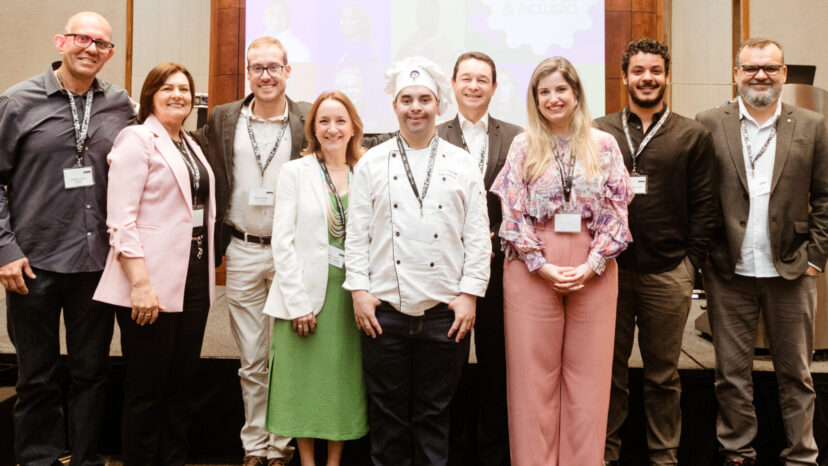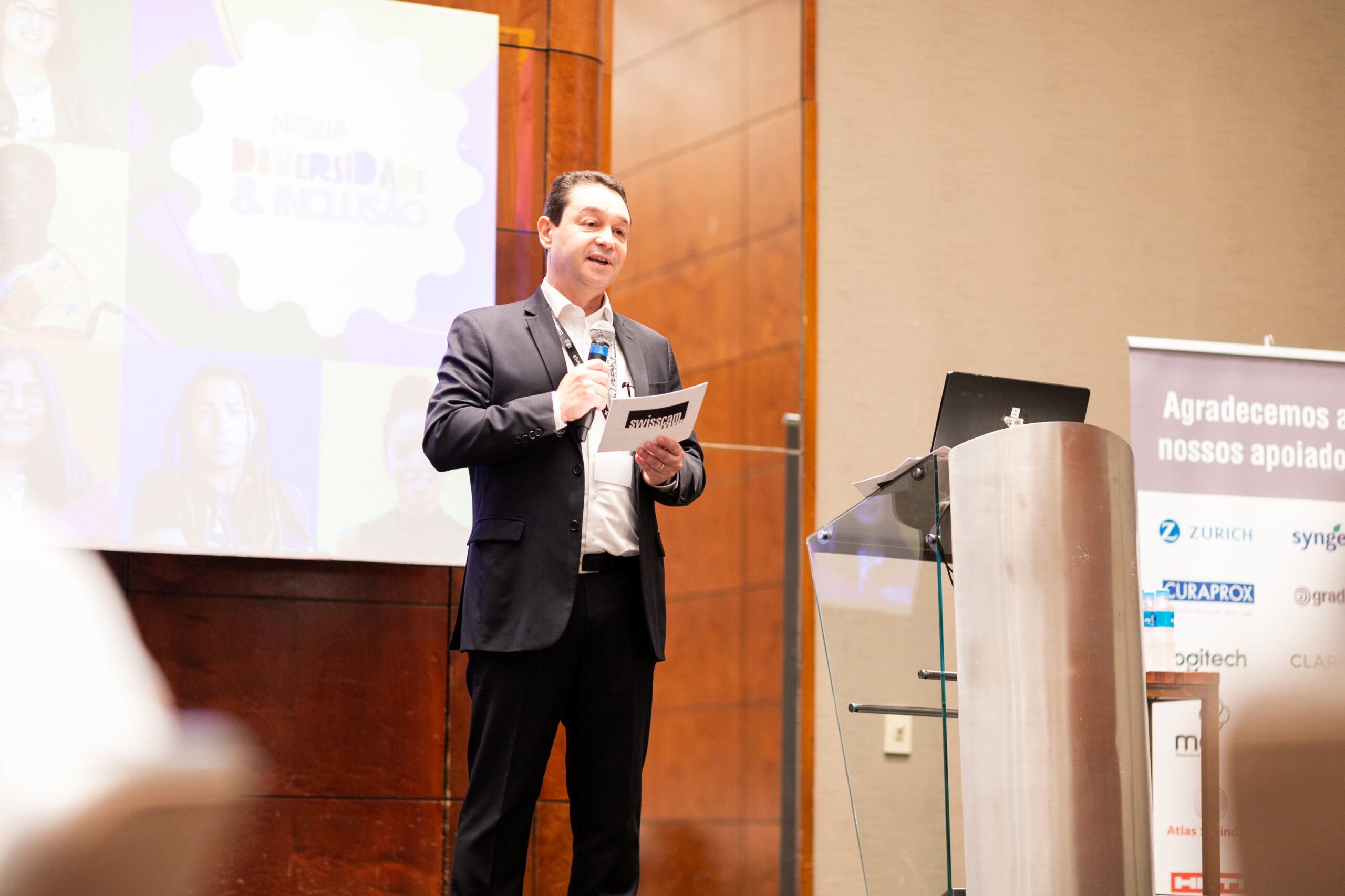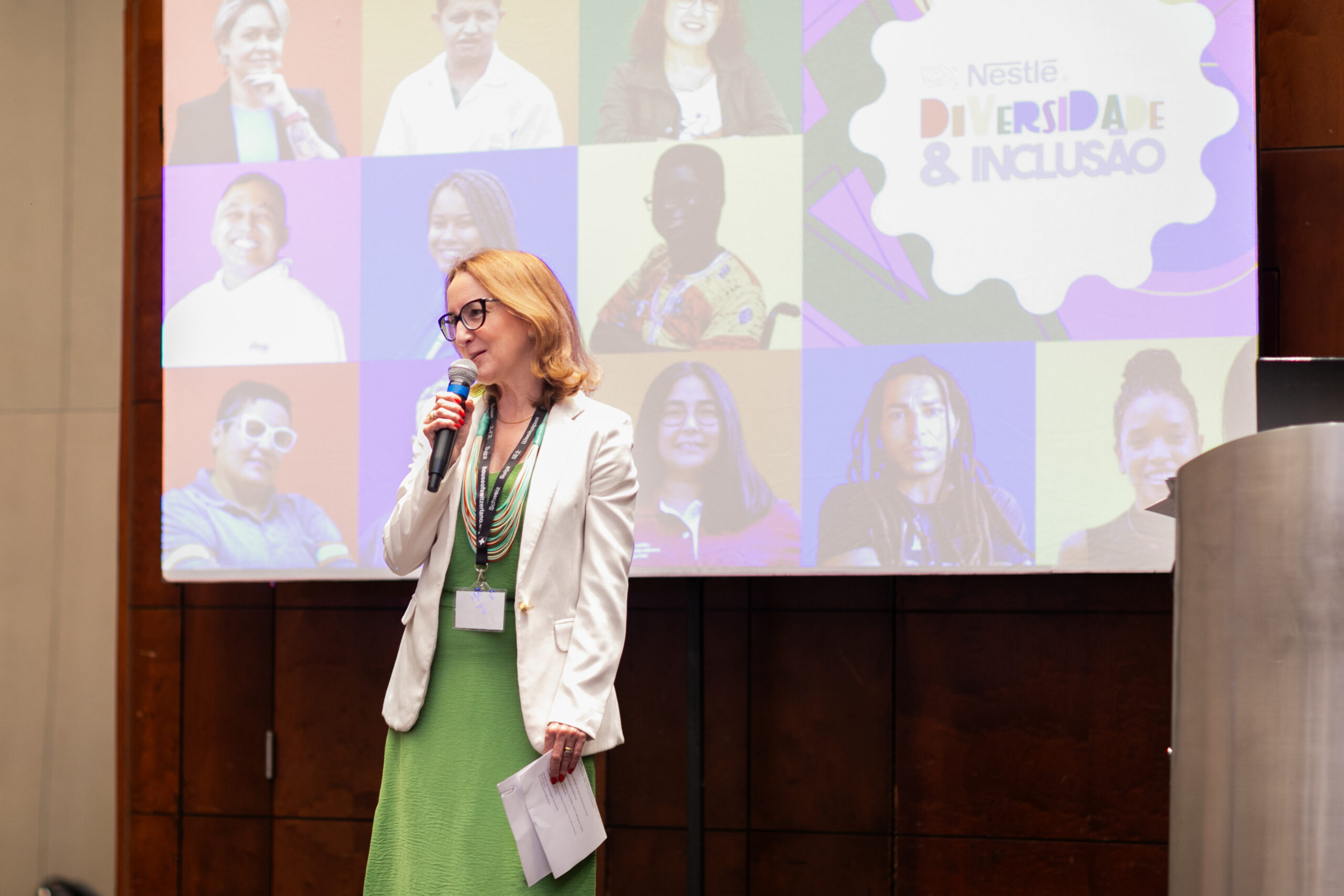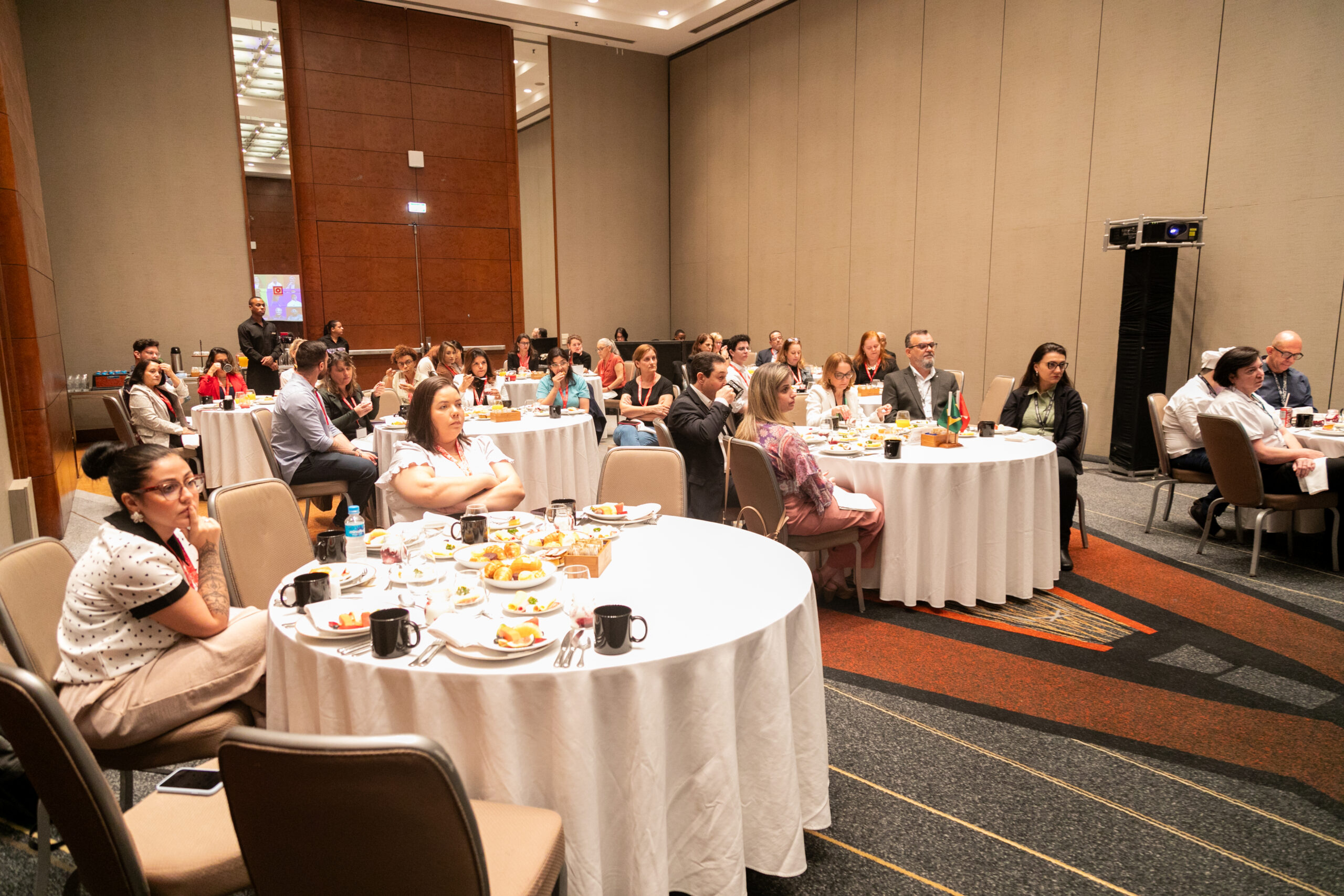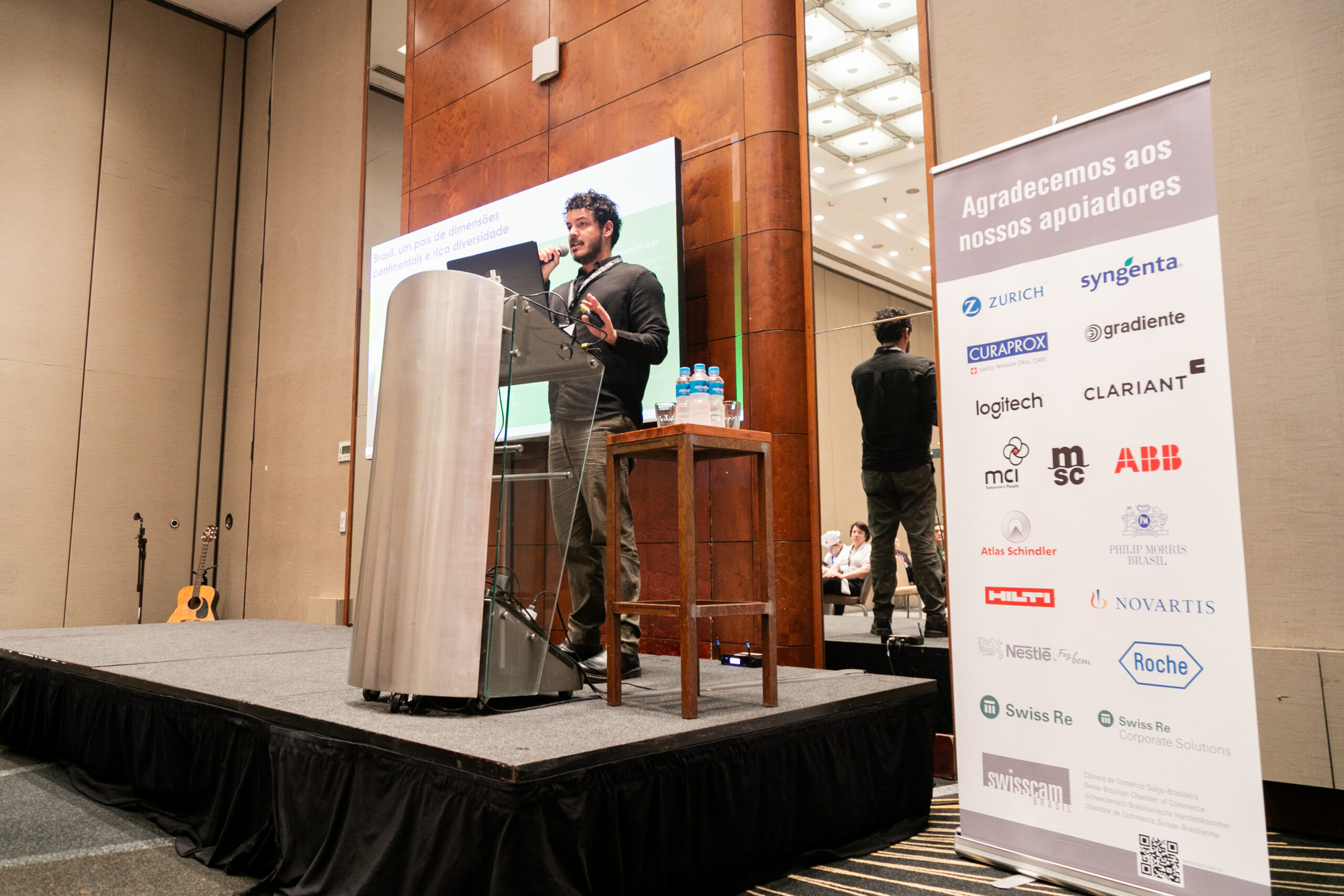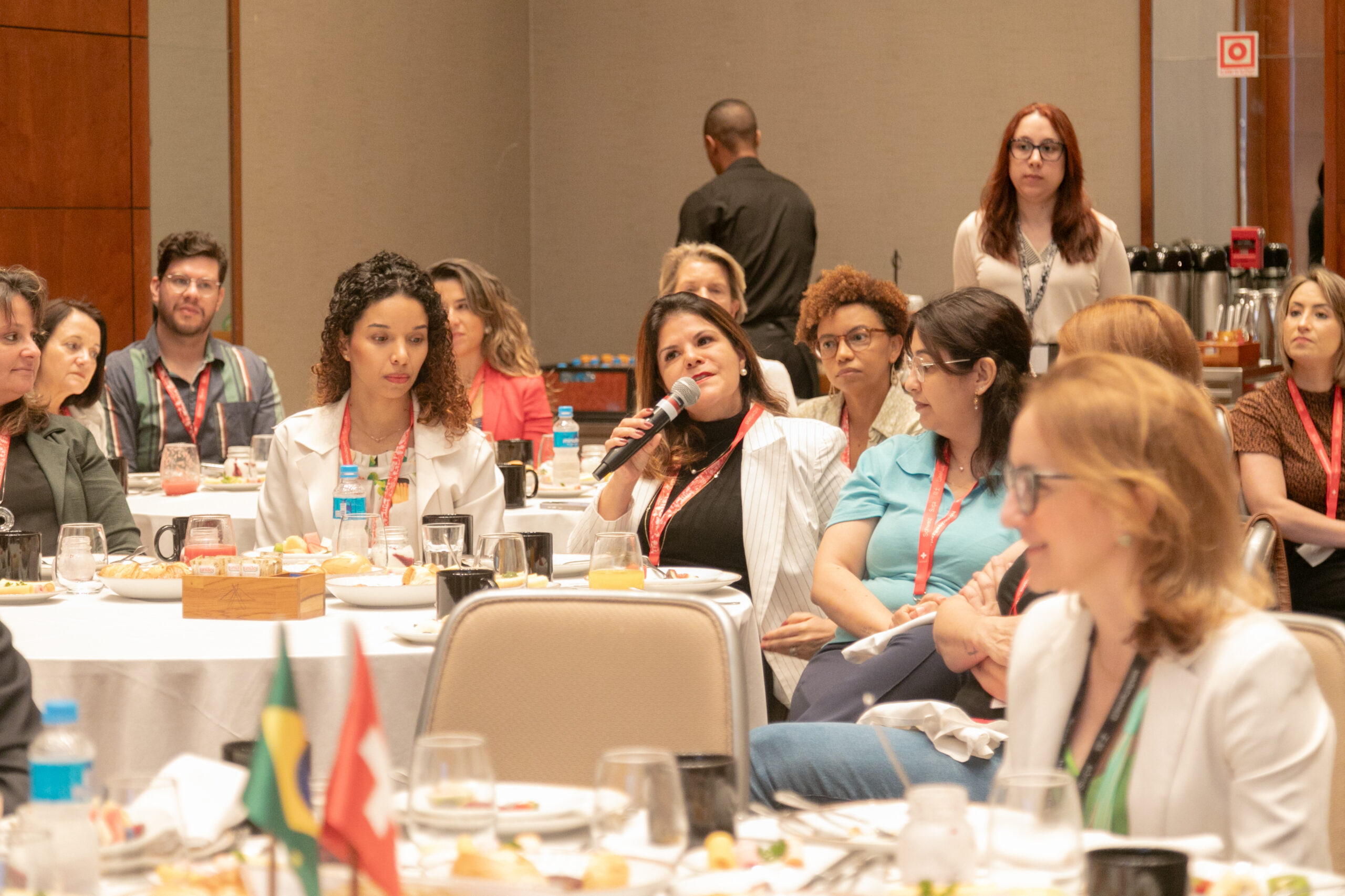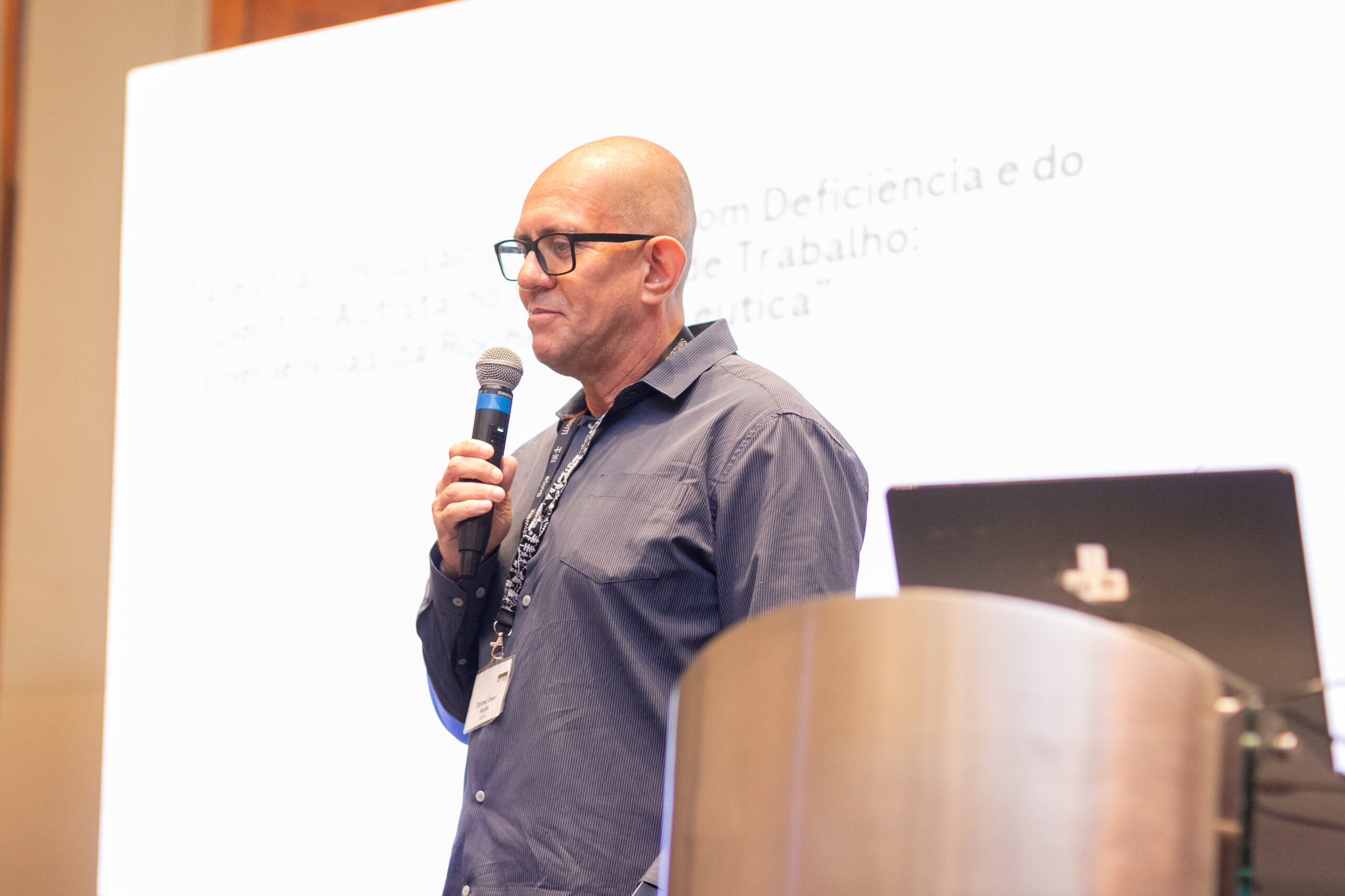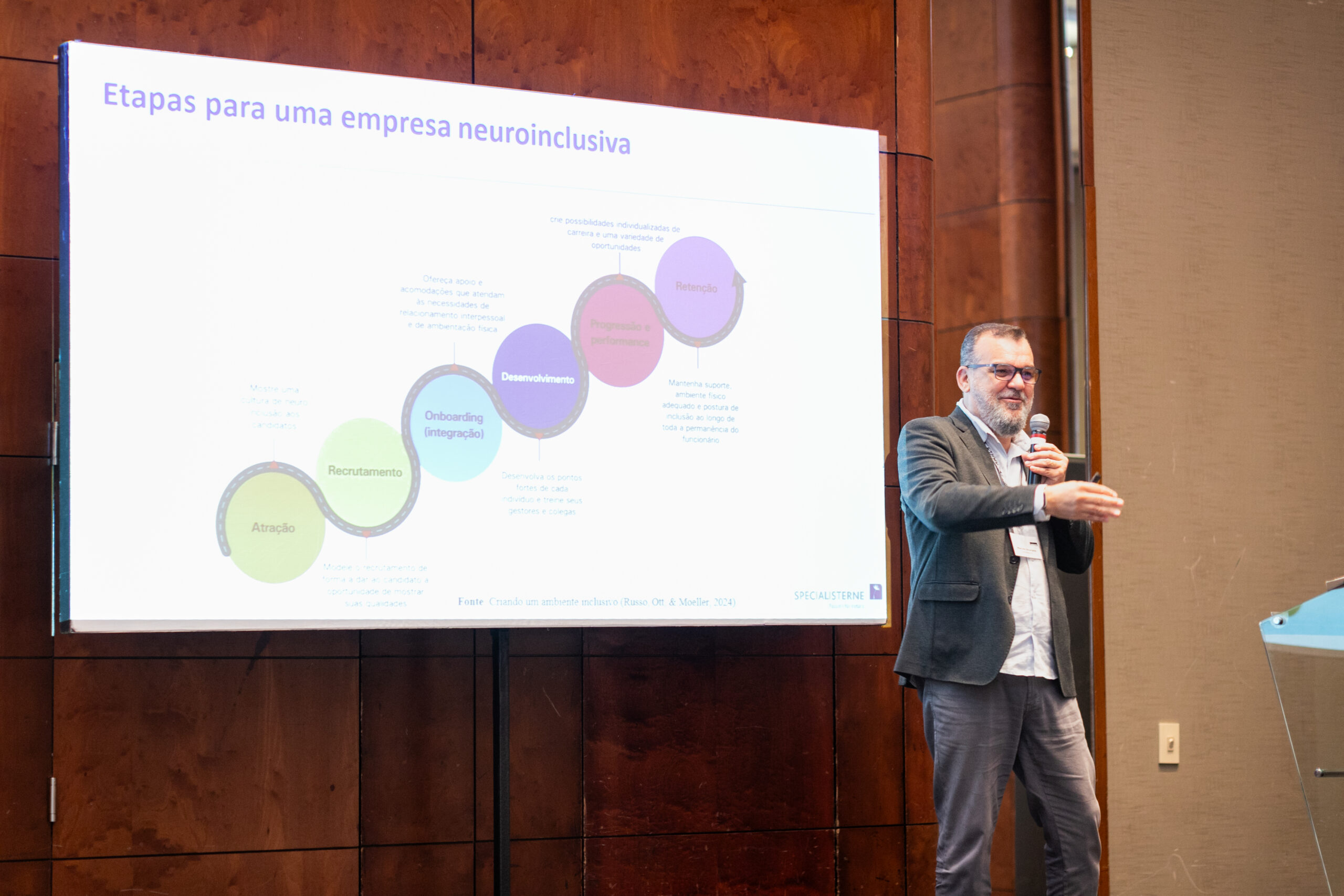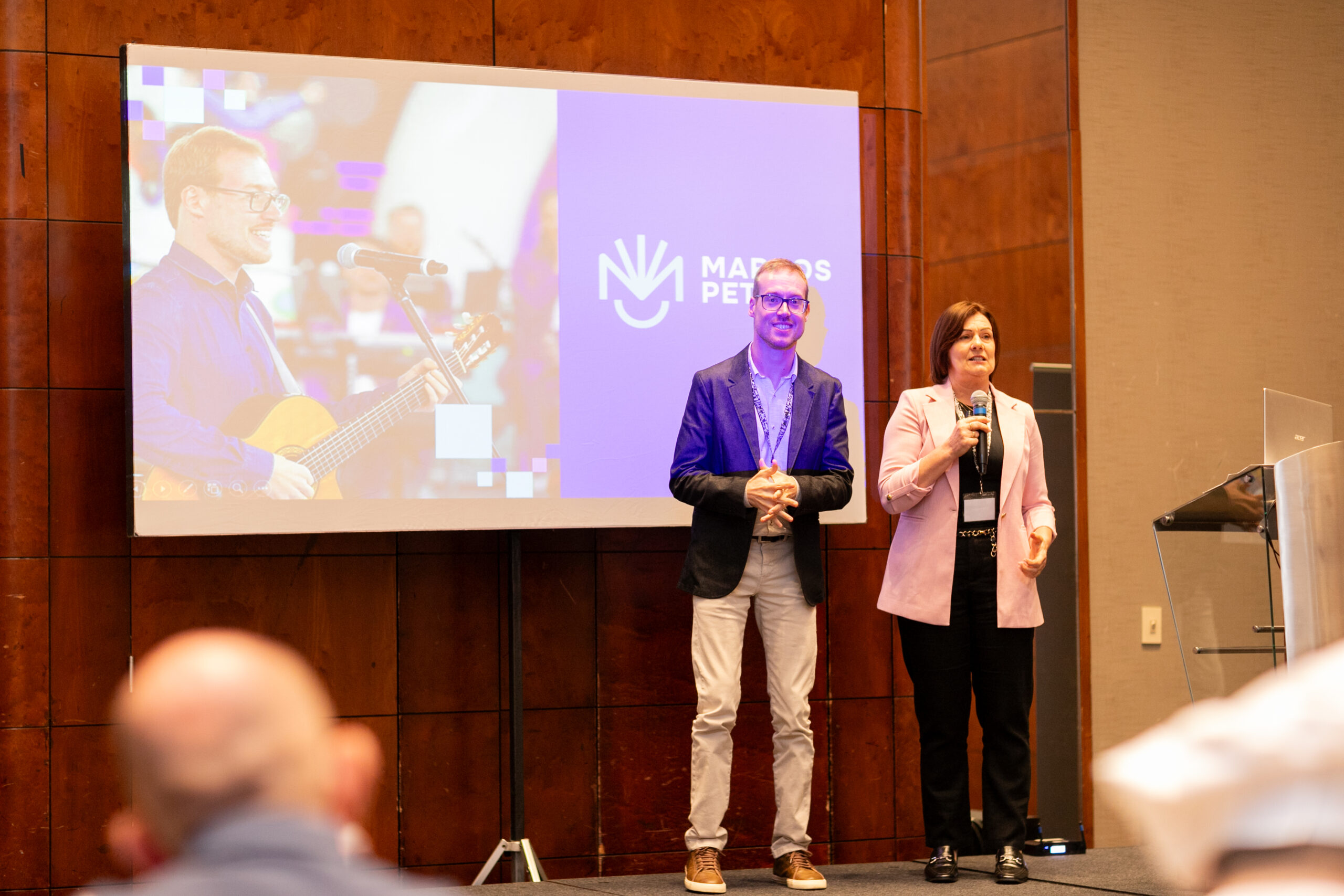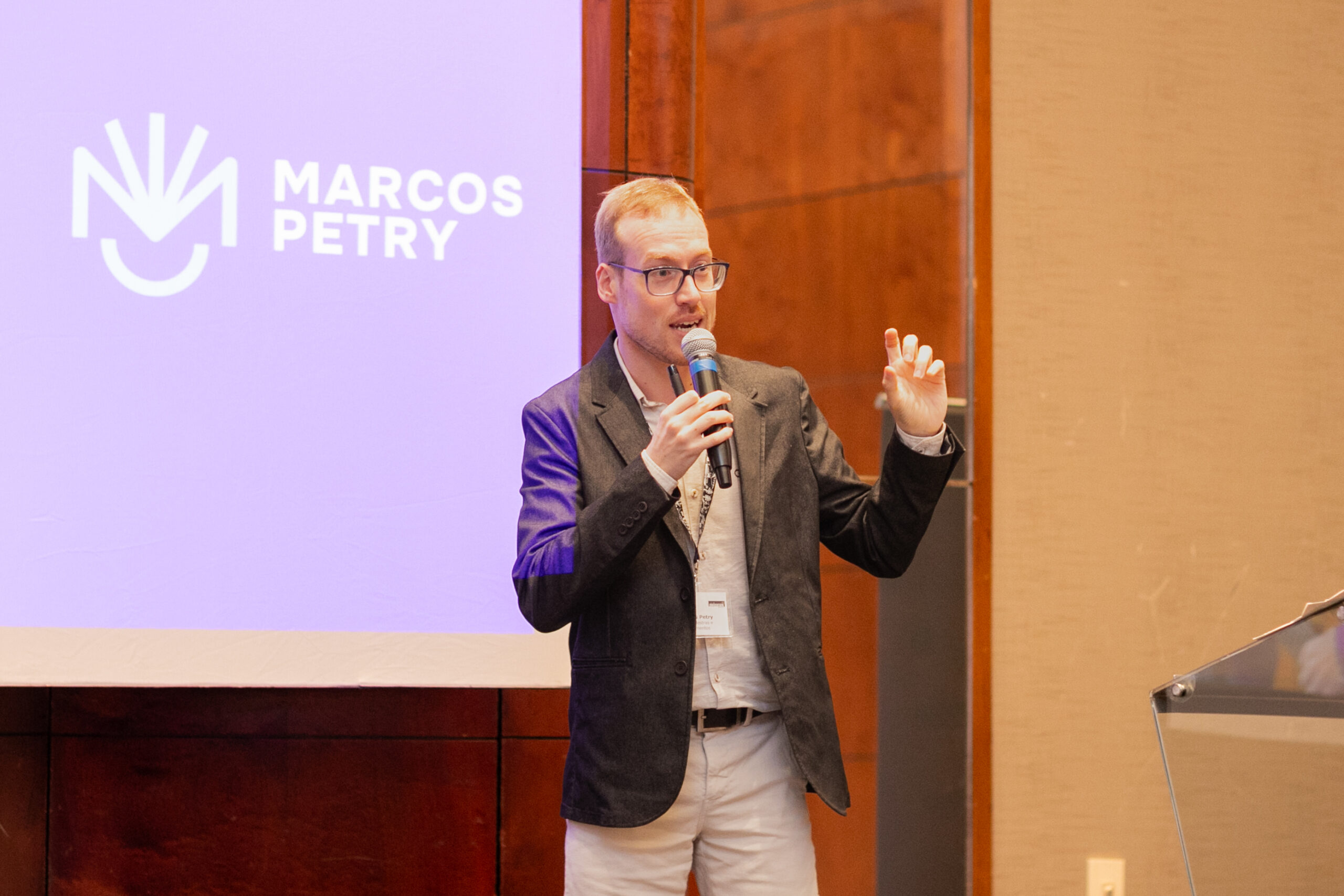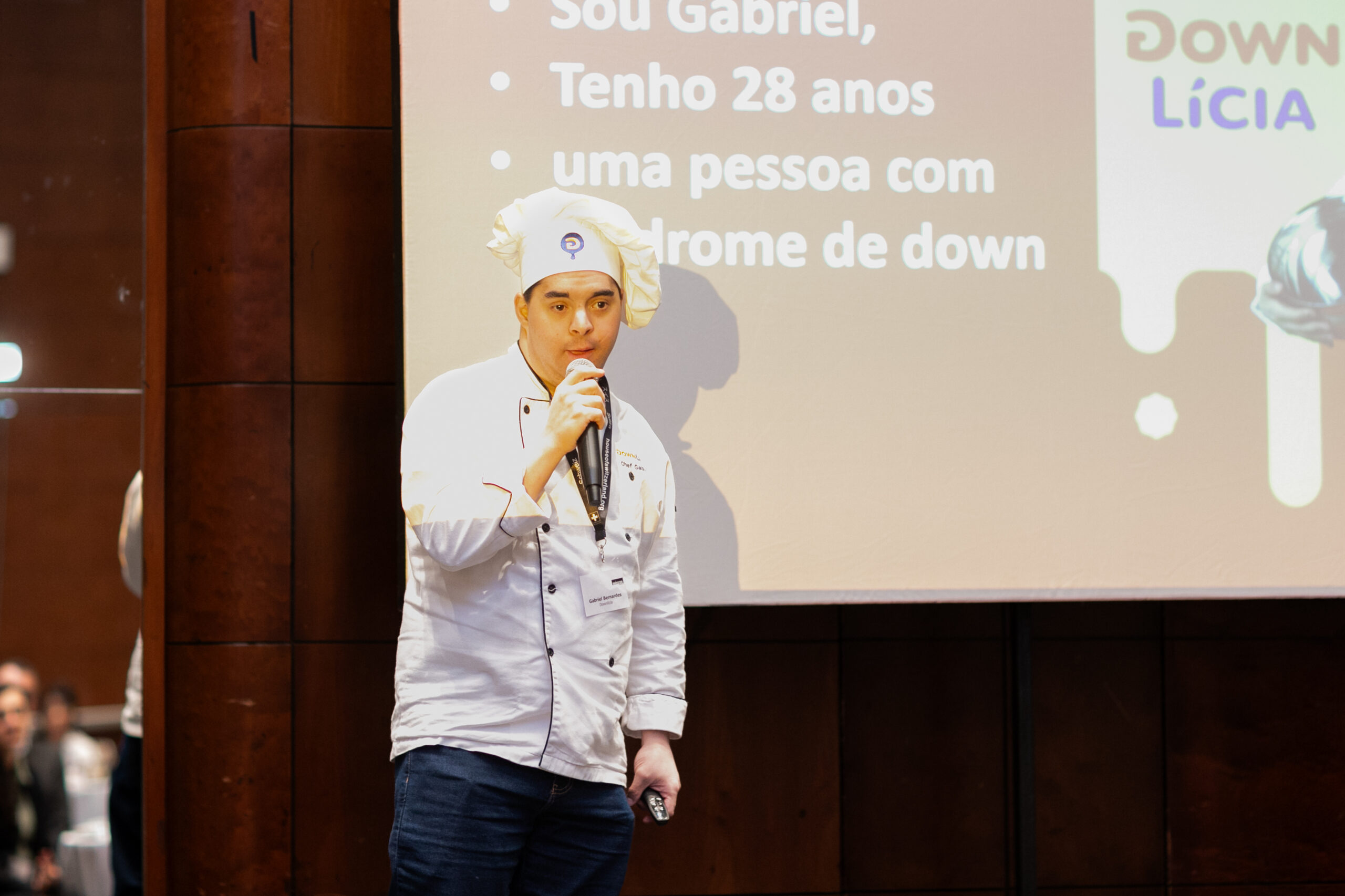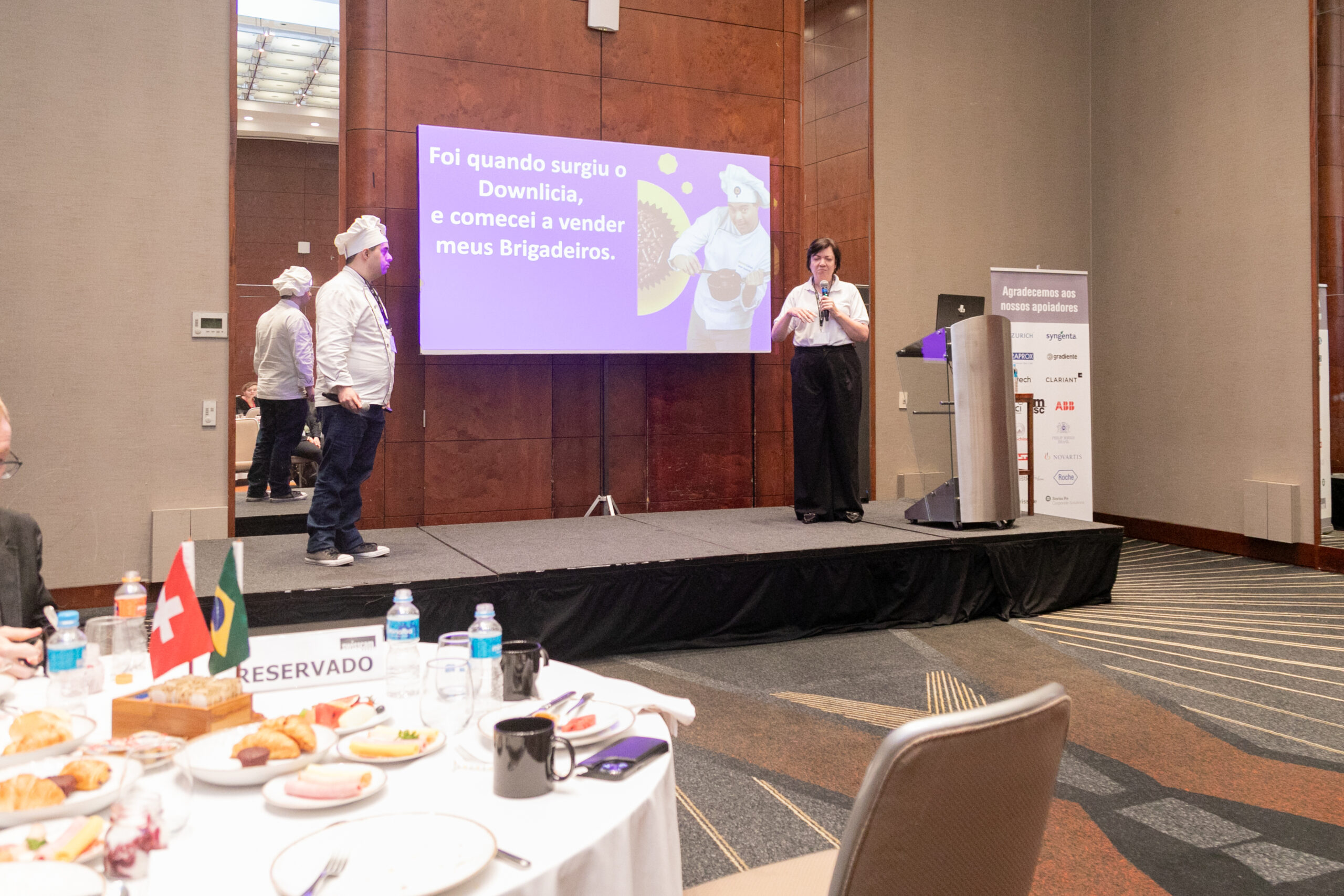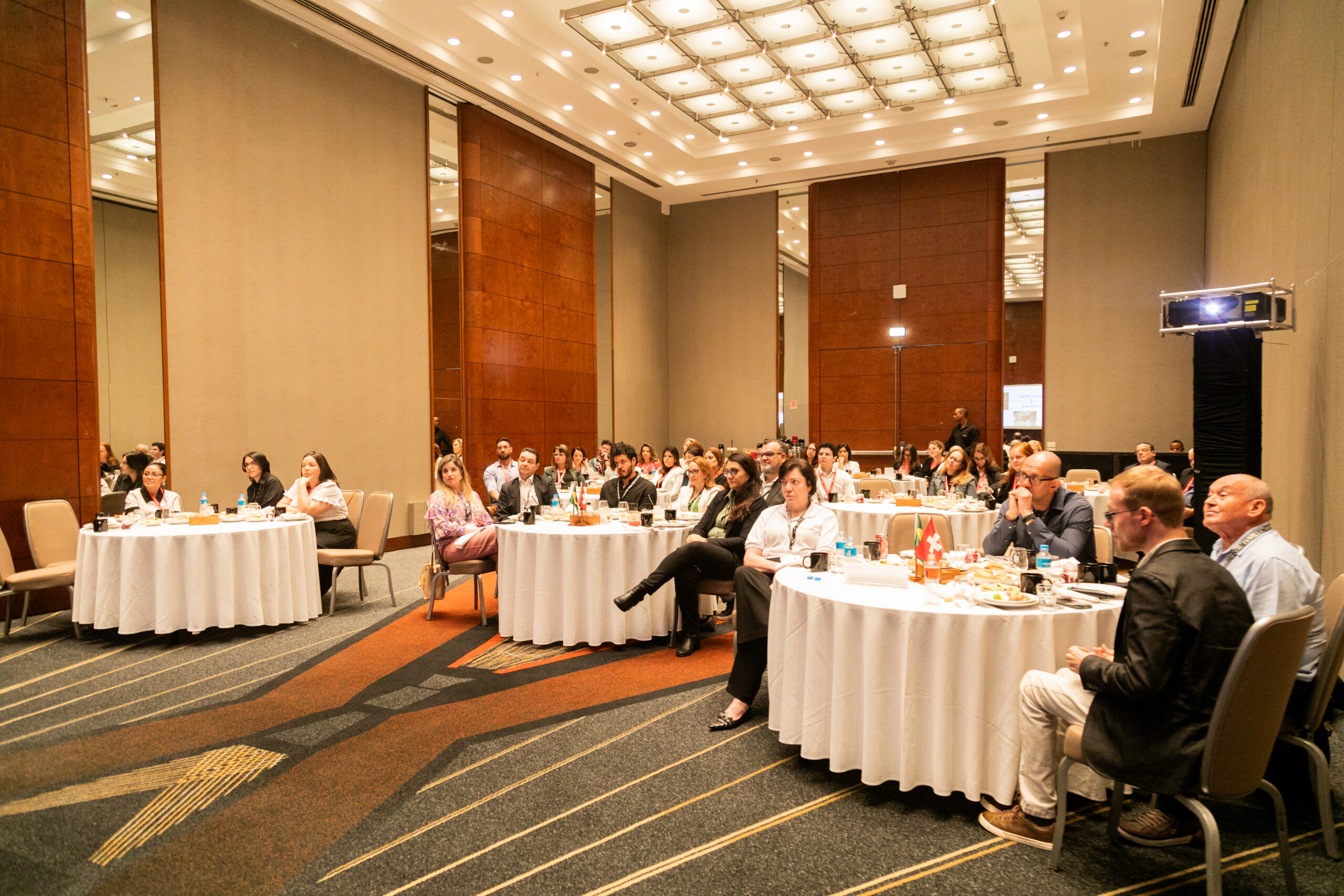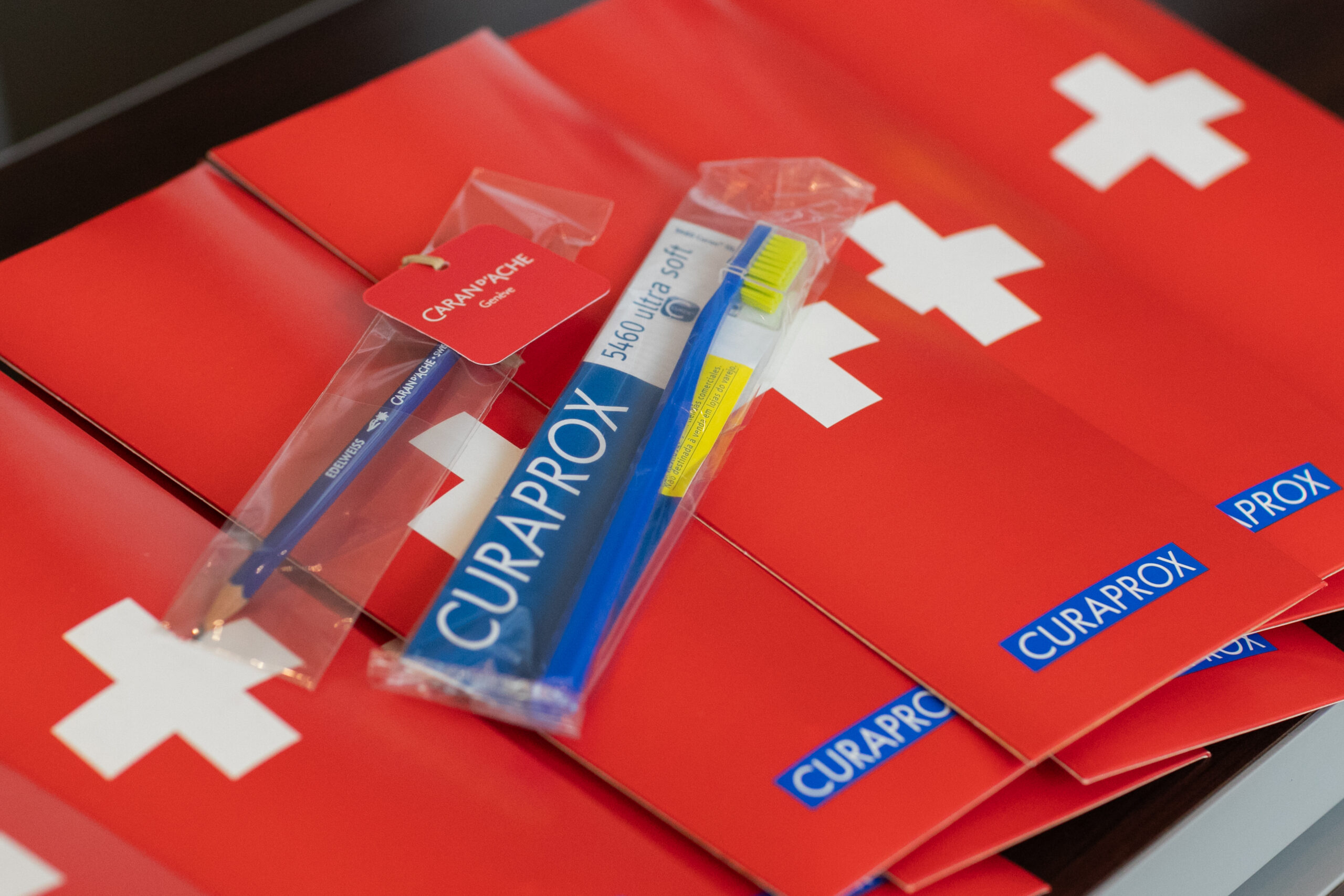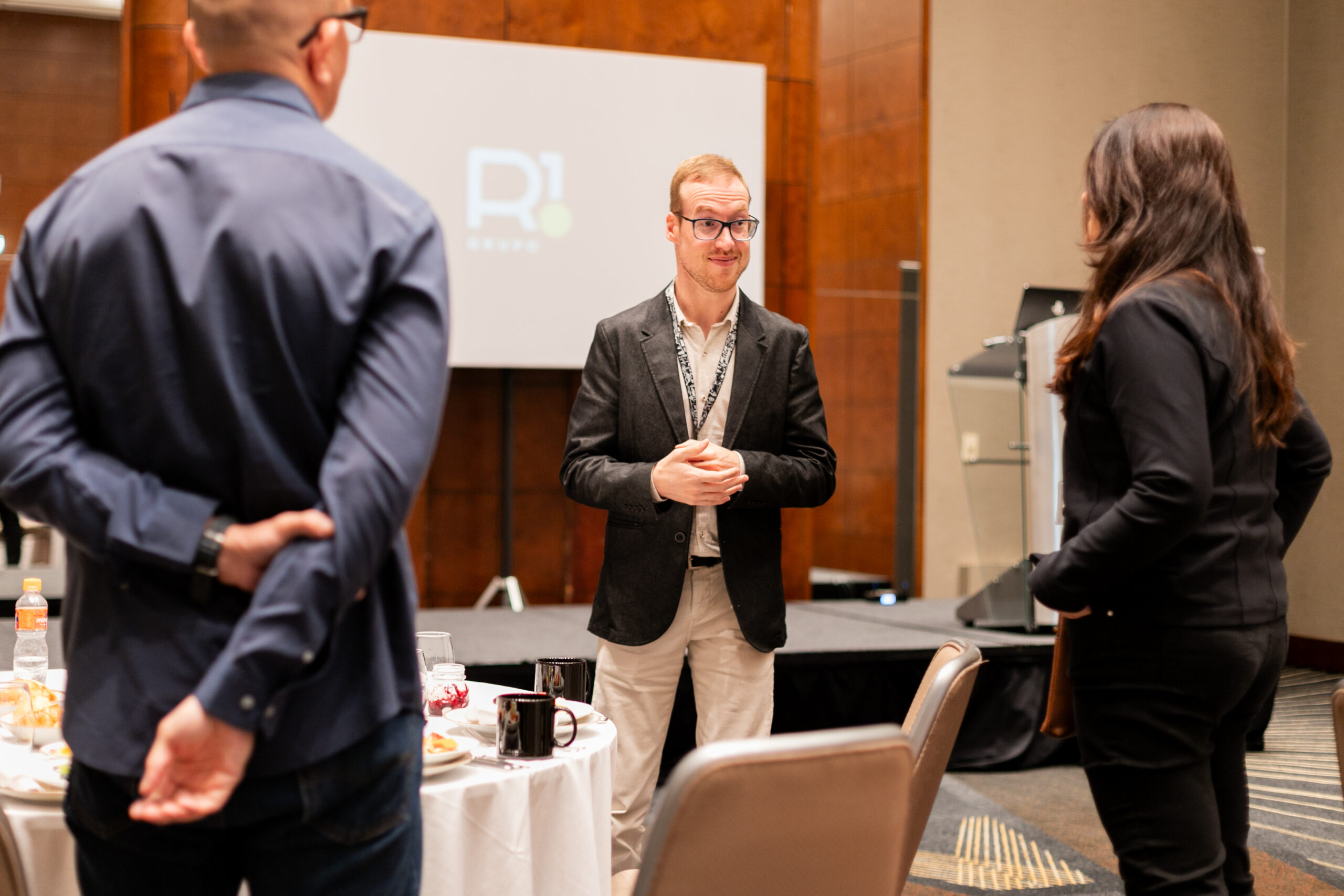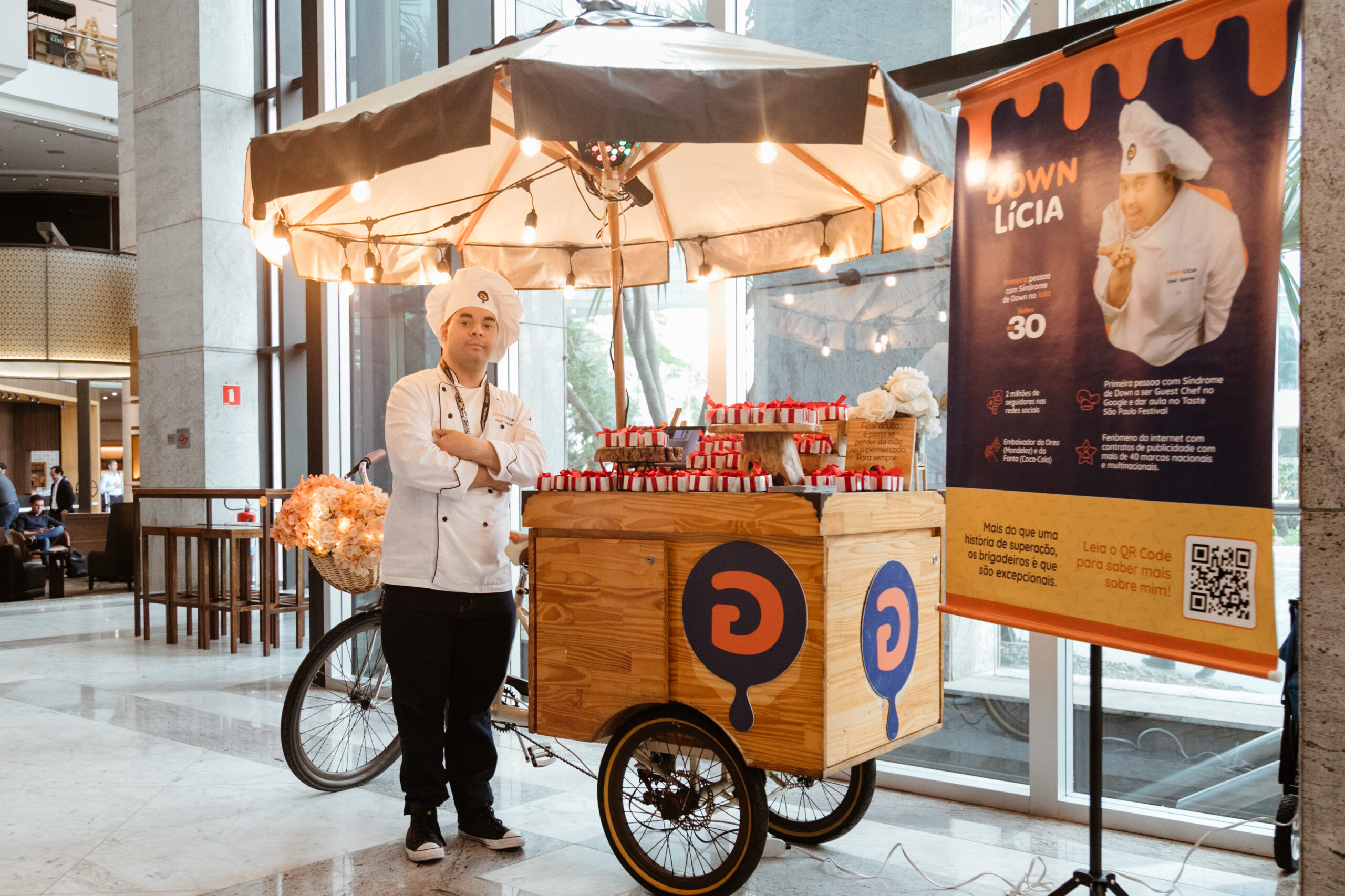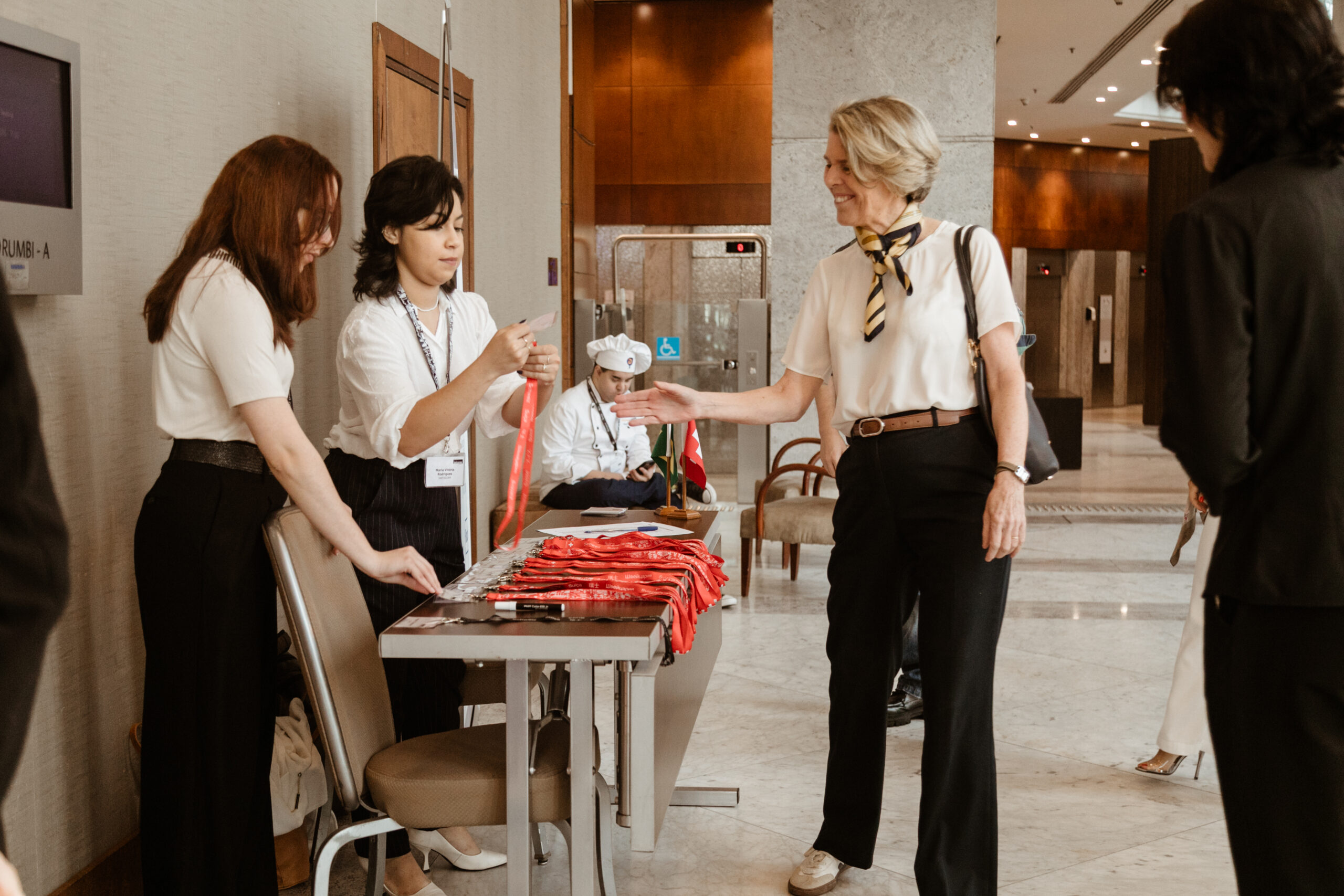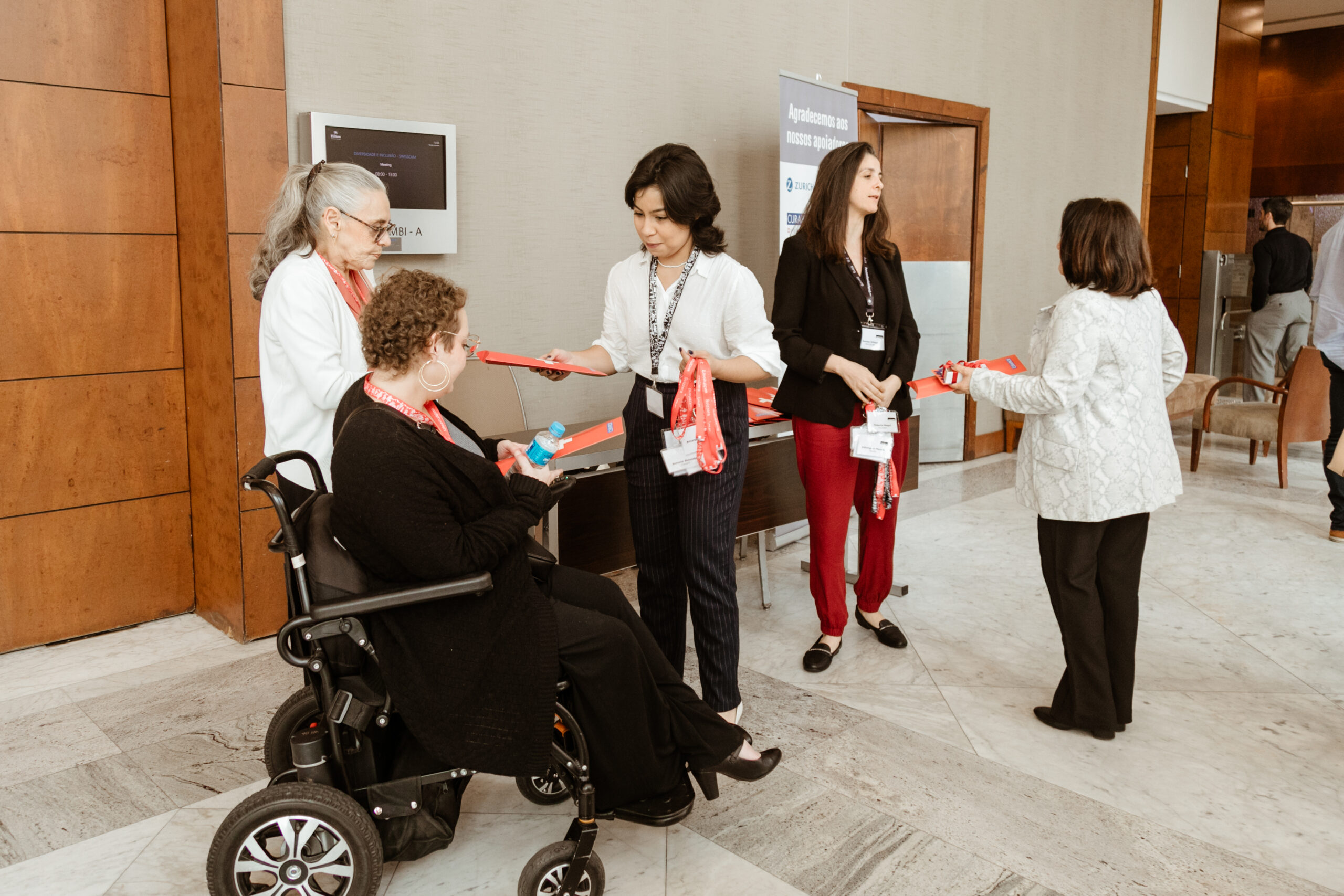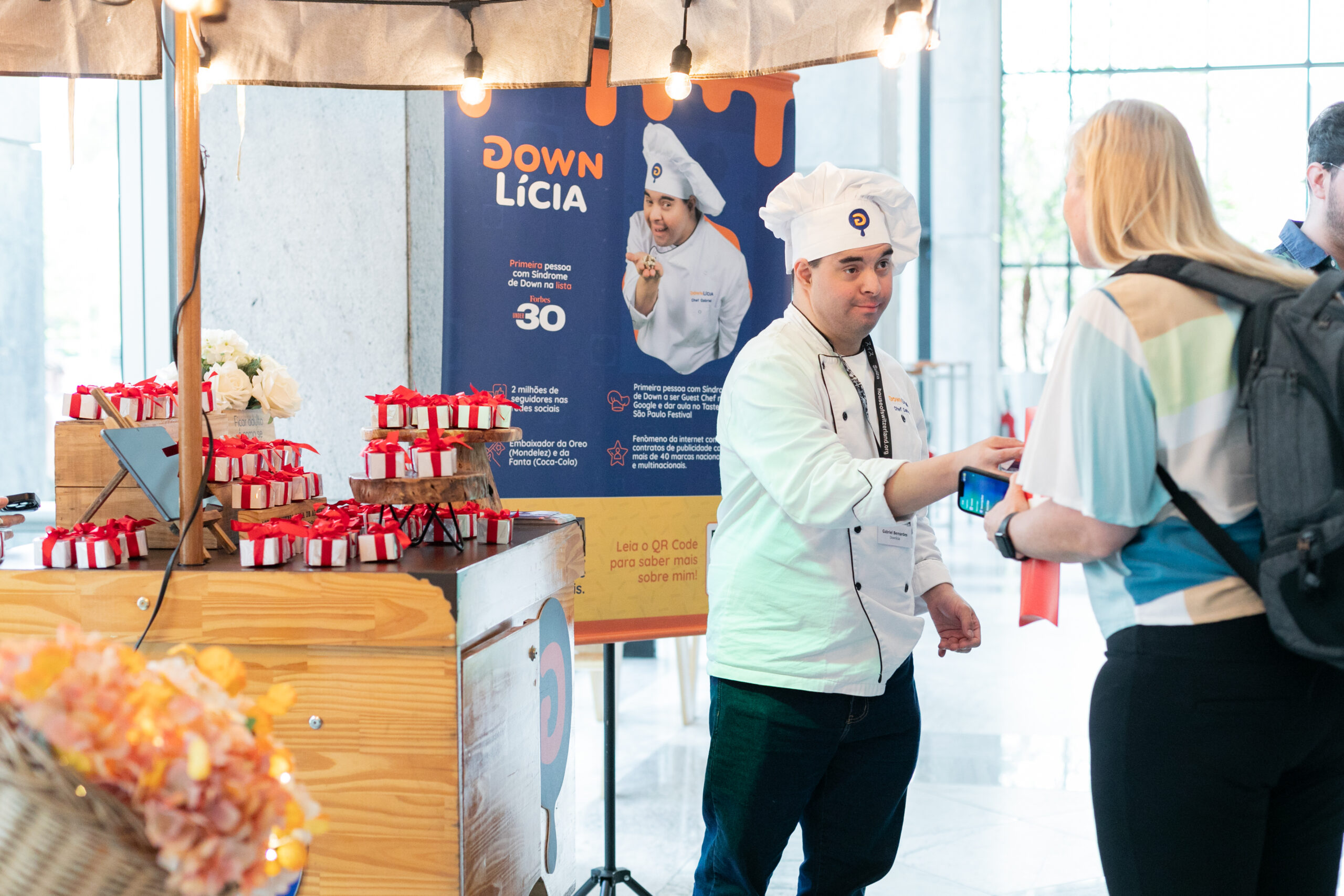On 8 October 2024, SWISSCAM’s Human Resources Committee held the Diversity and Inclusion Panel for the seventh consecutive year at the Hilton Morumbi hotel in São Paulo. With the theme “The Inclusion of People with Disabilities in the Labour Market: Opportunities, Perspectives and Entrepreneurship”, the event brought together professionals and experts dedicated to discussing ways of effectively integrating people with disabilities into the corporate environment.
The event was opened by SWISSCAM president Flavio Silva, who expressed his gratitude to the Gold members for their fundamental collaboration in organising the panel. He emphasised the importance of promoting diversity in companies as a means of boosting not only social inclusion, but also business performance and innovation. Maria Lúcia Gadotti, coordinator of the Human Resources Committee and responsible for organising the event since its first edition, then introduced the guest speakers.
Augusto Drumond, Head of Diversity and Inclusion at Nestlé Brazil, emphasised the importance of having a diverse team, since different life trajectories contribute to more effective decision-making in a company that represents the plurality of Brazil. He presented worrying data on the discrepancy between the demographic composition of the Brazilian population and the representation of black people and women in management positions. Drumond pointed out that people with disabilities represent 9% of the Brazilian population and at Nestlé this percentage has already reached 5.3%. He shared some of the company’s inspiring initiatives, such as the collaboration with Specialisterne, which aims to integrate people with intellectual disabilities, and the adaptation of factories, such as Garoto, which is fully accessible to deaf employees.
www.instagram.com/nestle_br
www.linkedin.com/company/nestle-s-a-
www.nestle.com.br
Djalma Cesar Rocha, Technical Services Analyst at Roche and Deputy Leader of the PERSON Diversity Front (People, Empowerment, Respect, Stories, Opportunity & Network), brought a personal perspective to the subject of inclusion. Rocha shared his experience as a person diagnosed with Asperger’s syndrome. He recounted how soccer helped him socialise and how, despite his academic performance, he faced difficulties during job interviews. After periods of depression and a master’s degree at USP, he found a welcoming environment at Roche, where inclusion goes beyond legal requirements, demonstrating a deep commitment to diversity.
www.instagram.com/rochebrasil
www.youtube.com/rochebrasil
www.roche.com.br
Marcelo Vitoriano, CEO of Specialisterne, a Danish organisation focused on training autistic and neurodivergent people for the job market, explained the concept of neurodiversity, created in the 1990s by sociologist Judy Singer in response to the distorted view of autism as a disease. Autism is nothing more than a neurodevelopmental condition that is different from what most people have, just like other neurodiversities such as ADHD, dyslexia, etc. In Brazil, between 4% and 5% of the population is neurodivergent, facing an alarming unemployment rate of around 70%.
The process of inclusion in companies is fraught with prejudice and difficulties. For this reason, Specialisterne carries out follow-up work for a minimum of one year. This approach has already shown positive results, with companies like Nestlé and Roche achieving a 93 per cent retention rate among their neurodivergent employees.
Marcelo highlighted some important points for companies interested in following this path: making their initiatives visible to the public; adapting recruitment and selection processes so as not to run the risk of blocking talent; making staff aware of the specific characteristics of neurodivergent people, considering that each individual is unique; de-standardising performance assessment criteria and career plans. Rethinking internal policies is necessary to create an environment that really supports diversity.
www.instagram.com/specialisterne_brasil
www.specialisternebrasil.com
The presentation by Marcos Petry, a recognised autistic author and speaker, influencer through the ‘Diary of an Autistic’ channel, together with his mother Arlete Petry, was one of the most impactful moments of the event. Arlete shared Marcos’ emotional story of overcoming his condition from birth, defying stigmas and going against the odds. In his eloquent speech, Marcos spoke about his research and his work to raise awareness, reminding us that inclusion is only possible with the foundations of knowledge. The second pillar is support. With so much talent and ability, what support will companies give to autistic people entering the labour market? He mentioned a successful project for the inclusion of neuroatypicals carried out in a company in Santa Catarina, which involved engaging and integrating teams, approaching leaders, adapting environments and communication, always with the aim of guaranteeing fairness. The result was impactful both inside and outside the company, as well as contributing to the humanisation of everyone involved.
He ended with a brilliant musical performance in German, Italian, French, Spanish, English, Swedish and Portuguese, involving everyone and proving how important music has been in his life.
www.instagram.com/omarcospetry
www.youtube.com/c/DiáriodeumAutista
www.marcospetry.com.br
The last panellist was Gabriel Bernardes, digital influencer and founding chef of Downlicia, who, accompanied by his mother, Martha Bernardes, shared his inspiring story. Gabriel, who has Down’s Syndrome, is an example of overcoming and entrepreneurship, having made a name for himself in gastronomy with his company specialising in brigadeiros, which also has a food bike for corporate events. Martha moved the audience by talking about the positive impact of Gabriel’s work on the lives of other neurodivergent people, emphasising that this kind of inclusion is fundamental and valuable.
www.instagram.com/downlicia_oficial
www.tiktok.com/@downlicia
www.youtube.com/@DOWNLICIA

